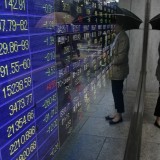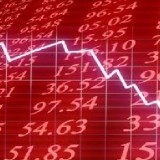
Posted on 03 March 2014. Tags: EUR, GBP, JPY, USD
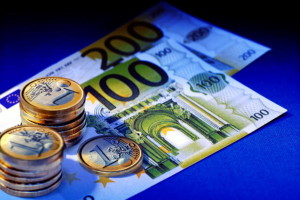 The EUR grew to 2-month high against the USD in the end of the last week. The growth came after the correction of the US gross domestic product (GDP) during the last quarter of 2013. This also raised the concerns about a possible slowdown in the contraction of the incentives in USA. The pair EUR/USD grew to a session top of 1.3824, which is the highest level until 27th December 2013. Later the pair retreated slightly to establish at a level of 1.3801 during the late trade. In this way the weekly growth of the EUR against the USD reached 0.49%.
The EUR grew to 2-month high against the USD in the end of the last week. The growth came after the correction of the US gross domestic product (GDP) during the last quarter of 2013. This also raised the concerns about a possible slowdown in the contraction of the incentives in USA. The pair EUR/USD grew to a session top of 1.3824, which is the highest level until 27th December 2013. Later the pair retreated slightly to establish at a level of 1.3801 during the late trade. In this way the weekly growth of the EUR against the USD reached 0.49%.
The USD stepped back against the JPY, dropping to 2-weeks low. The USD/JPY pair was traded on Friday session with decrease of 0.33% to a level of 101.78, which expanded the weekly growth to 0.7%. Retreats of the USD had also against the GBP and CHF. The pair GBP/USD grew with 0.34% to a level of 1,6745, while the pair USD/CHF decreased with 0.90% to 0.8804.
The depreciation of the USD against other major currencies in the world came after the Ministry of Commerce has revised the economic growth in the fourth quarter to 2.4%. The preliminary assessment of the institution was for a rise of 3.2%. The analysts had expected a downward adjustment to 2.5%. Meanwhile the EUR rose after the data showed that the annual rate of consumer price inflation in the Eurozone reached 0.8% in February. The level slightly exceeded the market forecasts of 0.7%. However, the inflation is still well below the 2% target set by the European Central Bank. The result slightly relieve the pressures on the institution to further loosen monetary policy in the upcoming meeting later this week.
The EUR grew against the JPY and GBP during the last week. The pair EUR/JPY finished the Friday session with growth of 0.34% to level of 140.48, while the pair EUR/GBP rose with 0.34% to 0.8244.
Posted in Currencies

Posted on 28 February 2014. Tags: European Union
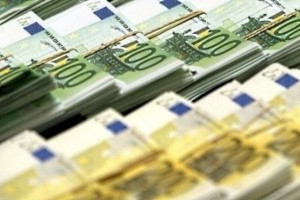 The inflation in the Eurozone in February was unchanged according to the expression studies of Eurostat. The calculated inflation in the monetary union was 0.8% yoy. The analysis of the main components of the index show that in the expiring month the energy prices significantly decreased with 2.2% compared to January 2014. According to the published data, the prices fell in this group deepened after the first month of the year, as the energy resources dropped by 1.2%.
The inflation in the Eurozone in February was unchanged according to the expression studies of Eurostat. The calculated inflation in the monetary union was 0.8% yoy. The analysis of the main components of the index show that in the expiring month the energy prices significantly decreased with 2.2% compared to January 2014. According to the published data, the prices fell in this group deepened after the first month of the year, as the energy resources dropped by 1.2%.
The growth of the food prices, alcoholic beverages and tobacco products is also restricted. In February the prices of the group grew with 1.5%, while in January the growth was 1.7% In the same time the services sector grew with accelerated pace from 1.3%, compared to 1.2% in January.
These data are preliminary, specify Eurostat. The final analysis, as well as information about the inflation across the EU will be published in the middle of the next month. The inflation rate in the European Union is well below the limit of 2% set by the European Central Bank (ECB). The decline in prices is a serious problem for the continent and many analysts warn of the danger of falling into deflation.
The news about inflation decreased the pressure over the European Central Bank to take further actions to support the financial system and economic growth at its meeting on Thursday. The ECB will hold its next monetary policy meeting next Thursday, and today’s inflation data reduce the possibility for immediate action on its part to have to convince financial markets, households and businesses that the central bank is aware of the threat of deflation. After the data for inflation the pair EUR/USD jumped with 0.7% to 1.3807 and reached new highs after the yesterday’s decrease.
Posted in Currencies, Economy

Posted on 25 February 2014. Tags: Venezuela
 Venezuela ease the restrictions on the purchase and sale of currency, by putting the foundation for a new platform for trading currencies to promote business access to USD. In the last 11 years the country maintained its control over the capital.
Venezuela ease the restrictions on the purchase and sale of currency, by putting the foundation for a new platform for trading currencies to promote business access to USD. In the last 11 years the country maintained its control over the capital.
With the changes in the law for foreign exchange offenses, it allows businesses and individuals to carry out transactions in foreign currency. This repeal all restrictions, including the requirement currency transactions to be carried out by the central bank.
However the market can not start working until the government publishes the new regulations for the foreign exchange trading. It is planned to be carried out a daily currency auctions. it is also planned to be deployed also third official exchange rate. Currently, the central bank is selling USD for 6.3 bolivars for purchasing goods and preferential, while there are also additional rate of 11.7 bolivars for other operations. On the black market the USD price is reaching 90 bolivars.
Posted in Currencies, Finance

Posted on 21 February 2014. Tags: KOSPI, Nikkei 225, Shanghai Composite
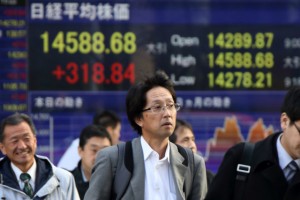 The optimism on Wall Street on Thursday session also inspired most Asian markets on Friday. In the early hours of Friday the Tokyo Stock Exchange achieved the most significant growth and all sights were pointed to Nikkei 225. The index added 2.88% and reached 14,865.67 points. Nikkei 225 interrupted its six consecutive weeks of losses, achieving the biggest weekly increase of nearly three months - 3.9%.
The optimism on Wall Street on Thursday session also inspired most Asian markets on Friday. In the early hours of Friday the Tokyo Stock Exchange achieved the most significant growth and all sights were pointed to Nikkei 225. The index added 2.88% and reached 14,865.67 points. Nikkei 225 interrupted its six consecutive weeks of losses, achieving the biggest weekly increase of nearly three months - 3.9%.
Among the top winners were Softbank and Panasonic, which shares rose with over 3.5%. Chugai Pharmaceutical, which is the Asian department of the Swiss medicine maker Roche Holding, added 4.5% after Citigroup upgraded the rating of the company with one stage.
Meanwhile the Japanese Finance Minister Taro Aso asked USA to maintain its close relationship with the markets in the gradual shrinking of its program of assets purchase. In his words, the reduction of QE is a positive move that is showing the improving of the global economy.
The Chinese Shanghai Composite lost 1.17% to level of 2,113.69 points. The investors continued to be concerned about the possibility of a slowdown in the growth of the second largest economy in the world.
The market capitalization of the crude oil giants PetroChina and Sinopec Corp dropped with 4% and 3% after the strong grows achieved a session earlier. Among the biggest losers were also the local banking institutions. Beijing Bank lost 4%, while the shares of Minsheng Bank decreased with 1.7%.
Meanwhile, the Chinese yuan (CNY) fell for a sixth day, heading for its biggest weekly loss against the USD over the past three years.
The Australian index S&P ASX 200 achieved its sixth consecutive session of growth. It added 0.49% to 5,438.70 points. Earlier during the trade the index climbed 4-months high of 5452 points, but later dropped a little.
After the good session the AUD returned some of the positions against the USD. At the end of the Asian session the pair AUD/USD the traded for 0.8992 USD after a one-week low of 0.8937 on Thursday.
The South Korean KOSPI index reached a month-top of 1,957.83 points or 1.41% growth for the day. The increase was the strongest within a session until 15th November. The macro economy data of the country showed that the household consumption has increased for the first time in six quarters in the last three months of 2013. The positive attitudes increased the assurance of the strengthening domestic demand.
Posted in Currencies, Indexes
 The EUR grew to 2-month high against the USD in the end of the last week. The growth came after the correction of the US gross domestic product (GDP) during the last quarter of 2013. This also raised the concerns about a possible slowdown in the contraction of the incentives in USA. The pair EUR/USD grew to a session top of 1.3824, which is the highest level until 27th December 2013. Later the pair retreated slightly to establish at a level of 1.3801 during the late trade. In this way the weekly growth of the EUR against the USD reached 0.49%.
The EUR grew to 2-month high against the USD in the end of the last week. The growth came after the correction of the US gross domestic product (GDP) during the last quarter of 2013. This also raised the concerns about a possible slowdown in the contraction of the incentives in USA. The pair EUR/USD grew to a session top of 1.3824, which is the highest level until 27th December 2013. Later the pair retreated slightly to establish at a level of 1.3801 during the late trade. In this way the weekly growth of the EUR against the USD reached 0.49%.







